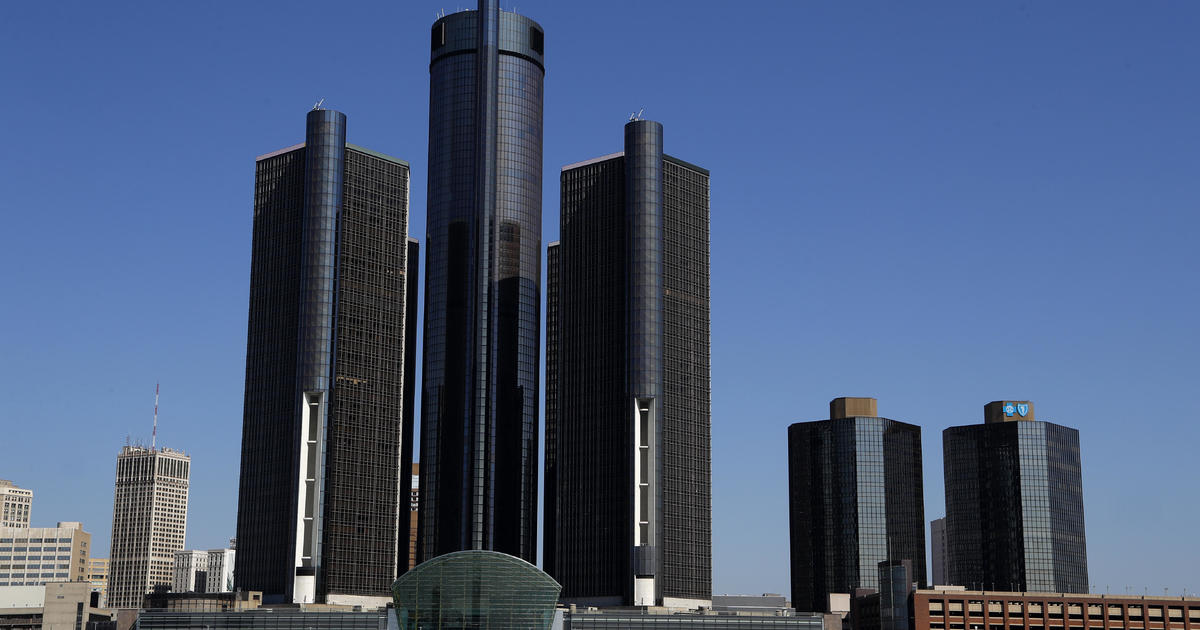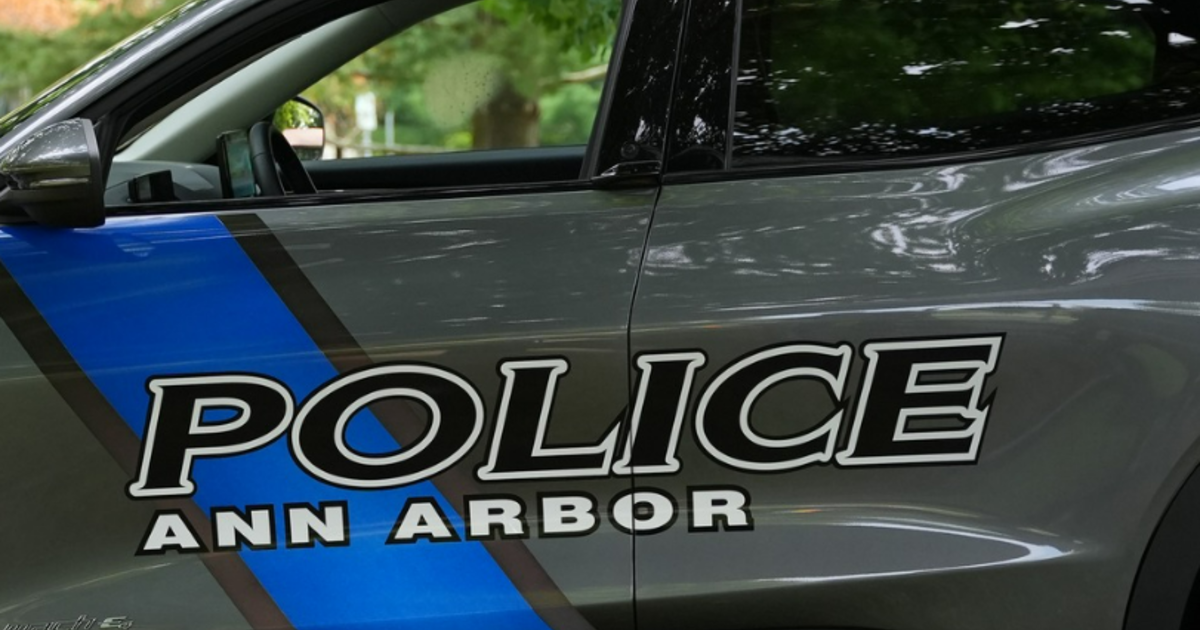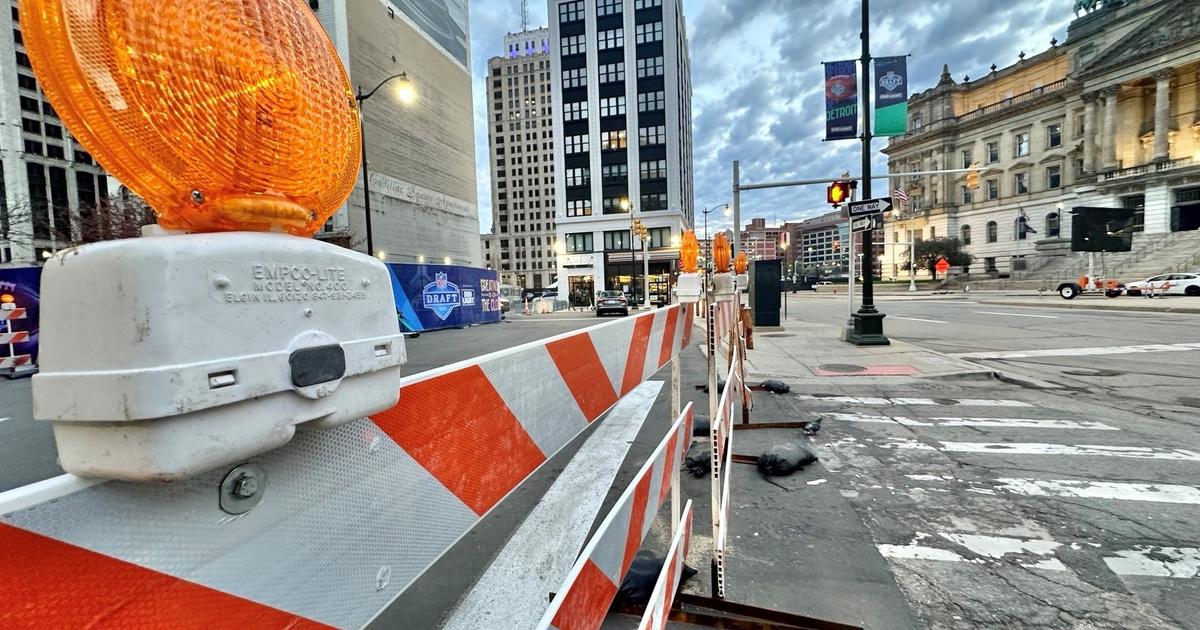Detroit Is Terrifying: Union Rep Says City EMTs Hesitant To Work After Stabbing Attack, 'No One's Life Is Worth $12 An Hour'
DETROIT (WWJ) - Emergency medical workers in Detroit are under trained, underpaid and now hesitant to come to work -- some even "terrified" -- after two of their colleagues were brutally attacked while helping an injured woman.
Some call it the most dangerous city in America and for those entrusted in protecting its citizens, it's a reality they deal with on a daily basis.
"It's terrifying. We have a lot of people that are absolutely terrified," said Jeff Gaglio, a steward from Detroit's paramedic and EMT union. "We fully understand that we are out here on an island, we are out here alone, help is not coming -- and it's terrifying."
Two city EMTs, Kelly Adams and Alfredo Rojas, came face to face with those fears early Tuesday morning. While treating a woman with an ankle injury, they were viciously attacked by a man with a box cutter. It happened just after 12 a.m. in a neighborhood east of the Lodge Freeway along Martin Luther King Jr. Boulevard. The paramedics were stabbed and slashed repeatedly in the hands and face before making it back to their vehicle and driving themselves to the hospital, where both remain in serious condition.
Their injuries are so severe that both "came to within inches of dying," officials said. Hours after the attack the suspect was taken into custody by the Violent Crimes Task Force. The woman who was involved in the initial incident was also apprehended. The man has not yet been named, but police said he was also wanted on homicide and sexual assault warrants.
While not nearly to this magnitude, Gaglio said EMTs encounter violent residents almost every time they're called on a run.
"Especially with the unit that these two EMTs were on last night, we have stacks and stacks and stacks of police reports and incident reports of these things happening. I would say on average, as far as violence scenes where things could escalate to a physical confrontation, that's a nightly incident," he said. "That happens every night."
So, how much are these workers getting paid to confront such dangerous situations as conditions of their employment?
"When they come on the job, they start out at about $12.50 an hour, just about under the poverty level but above minimum wage," said Gaglio. "Over a period of five years, these kids to have the opportunity to make a living wage. They're not going to walk in the door and start making that top pay. But we have the same problem as Detroit police: How do you convince somebody to come here and work for a low rate of pay and put your life on the line? There's nobody that I know of whose life is worth $12 an hour. I mean, $12 an hour is not adequate pay for somebody to come out here and put their life on the line and provide care to the citizens of the city."
Insufficient pay aside, Gaglio said the city has majorly failed in providing the tools that emergency workers really need to ensure their safety.
"We have no training. We have such an influx of young kids that are coming out of Detroit EMS, a whole new generation of EMTs and paramedics that have no formal training on how to mitigate situations, how to handle situations, how to use psychology to read body language to get out of situations before they escalate to physical violence," he said.
It's something the union has brought up with the city "time and time again," but their complaints always fall on deaf ears, said Gaglio.
"We've been pounding this in their heads for months and the problem that I have and what frustrates me so much, is we knew deep down inside that unfortunately it was going to take something of this magnitude for them to finally take notice," he said.
The city's police force is spread nearly as thin as it can get, so having an officer escort EMS rigs isn't realistic. But Gaglio thinks giving the workers an opportunity to arm themselves would make a world of difference.
"I do fully believe that some sort of non-lethal, intermediary weapons are definitely necessary," he said. "Personally, I think that pepper spray would be highly effective in maintaining situiaiots and I think that would stop these incidents from escalating to the point that it got to yesterday. But above that -- we need the training that goes along with it. The education is the key."
Interim Fire Commissioner Eric Jones said he was planning to meet with Police Chief James Craig to discuss "de-escalation training" and defensive tactic training to prevent another attack like this from happening in the future.



